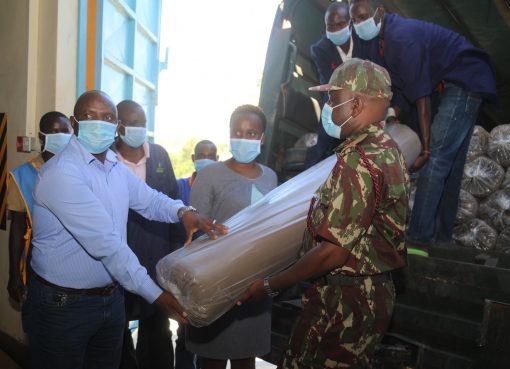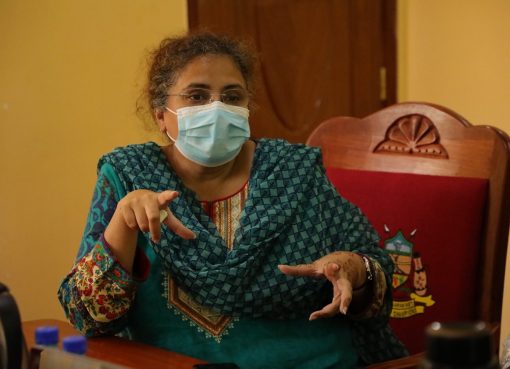


The Economic Sustainability and Nutrition among households in Kapkelelwa Location of Baringo County is expected to improve after 14 farmers graduated Thursday from Pastoral field school programme with new agricultural skills after undergoing a year training.
Pastoral Field School Program is carried out under Regional Pastoral Livelihood Resilience Project (RPLRP) and is funded by World Bank. It seeks to create sustainable farming practices among the pastoralists.
According to one of the farmers from Kasaka Self Help Group, Mrs. Leah Korir they have acquired new skills in livestock production, livelihood diversification, pasture farming, animal health, group management, table banking and disaster risk management.
Leah said that nutrition in their families will improve greatly as the family will be the first line of benefit from the improved yields be it milk, meat or other products from the farm.
“My family can now eat white meat from the chicken regularly as well as eggs from the improved breed of chicken we are rearing and also milk from our improved cows thanks to the pasture that we now generate,” said the farmer.
The farmer said they are also able to generate income from selling surplus produce and alternative crops they have been taught to produce.
“From that extra income we can now meet our other economic needs like paying school fees for our children, clothing and even improving our homesteads,” added Leah.
Of greater benefit to the pastoral farmers who suffer from frequent drought that affect their livestock is pasture production which will see them absorb the shocks of drought that hits them almost every year.
“In this first year we planted boma Rhodes and cinchiliaris grass on seven acres out of the 15 we had set aside and fenced. We now lack a storage facility for our pasture,” said Edward Chesire, a trainer with Pastoral Field School (PFS).
The group is also doing well in improved chicken rearing after they got day old chicks from the county government and a solar hatchery unit from the Regional Pastoral Livelihood Resilience Project and they enable to supply eggs to other groups in the county.
“We are now looking for a feed mixer so that we can produce our own commercial feeds for livestock here and a storage facility, we have done some project proposal and we believe we will get a sponsor,” added Mr. Chesire.
Chesire said that the poultry project has been very successful and that they are distributing eggs to six other similar groups undergoing the training in the county.
Area Member of County Assembly, John Tarus heaped praise on the project, saying it will help reduce poverty levels in the ward which stood at 63.3%.
He urged the residents to take up the activities seriously and also educate their neighbours so that they can alleviate poverty in the area.
Tarus promised to partner with Kenya Farmers Association, an agricultural financial institution to help them gain loans and improve their ventures.
He congratulated the farmers for enduring the 52 week long training, saying it was hard for adults to sacrifice their time noting that one of the trainees was over 60 years old.
The Livestock Chief Officer from Baringo County Government, John Ndirangu commended the Regional Pastoral Livelihood Resilience Project for training the farmers on modern farming skills.
“I urge the respective authority to consider the agriculture and livestock kitty when allocating funds so that the department can support and finance such trainings in the county and more importantly empower the society in general,” he said.
The RPLRP Baringo Project Coordinator, Lui Kiprono said they had received a one year programme extension which they were using to ensure that the projects they had started are going to be sustainable in the long run.
He reiterated that it was possible for farmers to improve their standards of living through best agricultural practices and urged the group to work hard and practice what they had been taught.
By Christopher Kiprop/Irene Mutwol



